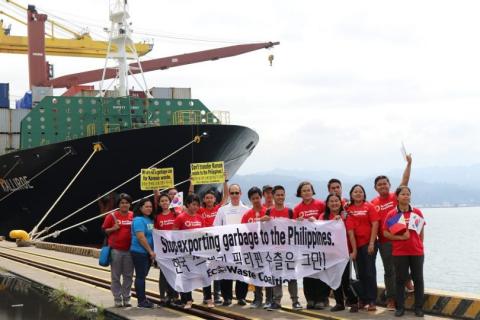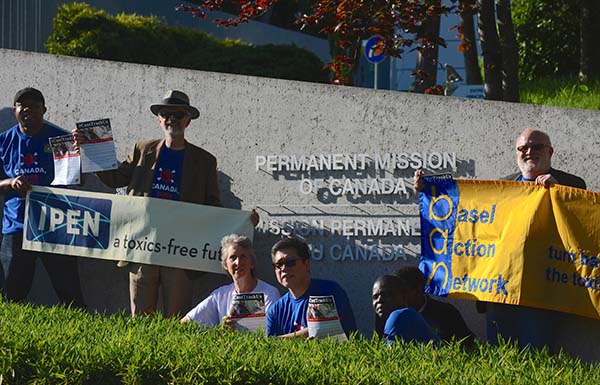"Canada, Take Out Your Trash!”

For the past six years, EcoWaste Coalition, an IPEN participating organization from the Philippines that promotes chemical safety and zero waste, has been leading a movement to demand that Canada repatriate illegally dumped toxic household waste, which has been rotting in Philippine ports.
At issue are 103 shipping container vans of mixed garbage from Canada that were exported to the Philippines under the guise of “recycled goods.” The scandal began in 2013 when Canadian shipping containers entered Philippine ports and wrongly declared the household garbage as scrap plastics for recycling. Canadian Prime Minister Justin Trudeau had made assurances in 2017 that he would resolve the stinking waste scandal. Today, the problem still festers.
EcoWaste’s letter to the Prime Minister is generating international attention.
The horrible news is that Canada lead the way in dumping in the Philippines, as South Korea did the same. But when South Korea was caught dumping 6,500 tons of household garbage in the Philippines in 2018, EcoWaste organized and succeeded in making South Korea take back their garbage in January of 2019. EcoWaste stressed, “the repatriation of the South Korean garbage to is source should rouse Canada into resolving the festering garbage dumping controversy.”
“It is scandalous for rich countries to treat the Philippines as a global landfill because of the weakness of our laws and their enforcement,” said Aileen Lucero, EcoWaste’s Director.
When dumping is disgused as recycling: Where does your waste go?
See Basel Action Network’s (BAN) Trash Transparency Project on the global crisis of illegal dumping. BAN put GPS scanners on e-waste to be “recycled” to see where it turned up .
International Law: Exporting toxic household trash is illegal under the Basel Convention on the Control of Transboundary Movement of Hazardous Wastes. In April 2019, the United Nations will convene governments to address toxics in plastics and waste during the Conference of the Parties to the Basel, Rotterdam and Stockholm (BRS) Conventions. The Canadian violations could be raised at this meeting again, as the issue was first raised in 2015 by BAN and IPEN both at the BRS Convention and the Canadian Embassy in Geneva, Switzerland.
Making matters worse, Canada is one of two dozen countries that have refused to endorse an amendment to the convention that would bar shipments of hazardous waste altogether.

IPEN and BAN protest illegal and toxic waste dumping at the Basel Convention in Geneva in 2015. (photo credit: BAN)
#StopTrashingHumanRights
